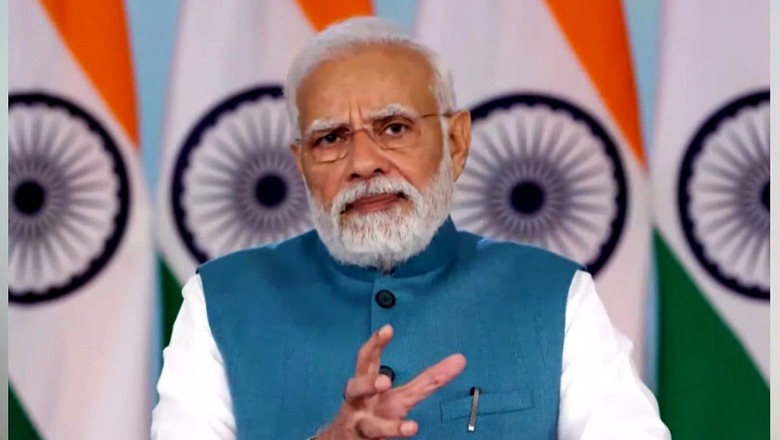
views
The Chintan Shivir (brainstorming camp) of home ministers that ended on Friday in Haryana reached an agreement on working hard to combat cybercrime with a primary focus on it. The government machinery of states and the Centre concluded that attention should be on cybercrime, improving conviction rates, narcotics, border security, etc. To achieve a 90 per cent conviction rate, forensic sciences have a big role, it was acknowledged.
Also, state and central representatives discussed that since Internal security is a shared responsibility of both the Centre and states, both should work with the spirit of Team India, sources said.
While giving details about achievements, government sources said that Bihar and Jharkhand have become free from Left-wing extremism (LWE) and 9,200 Northeast militants surrendered arms in the past 8 years. Development is taking place in the Northeast and areas under AFSPA have reduced, they pointed out.
Sources also said that the Northeast, Jammu and Kashmir and combating Left-wing extremism are areas where the Narendra Modi government has achieved unprecedented success and states should hold regular meetings of the National Narcotics Coordination Portal (NCORD).
The Centre has advised all states that they should constantly and annually review goals and have a plan for where their internal security will be in 2047.
In the morning, Prime Minister Modi addressed Chintan Shivir of state home ministers via videoconferencing.
Addressing the gathering, he complimented the preparations of law and order personnel for a peaceful atmosphere during the festival season. He said that the Chintan Shivir is a prime example of cooperative federalism. The Prime Minister said even though law and order is the responsibility of the states as per the Constitution, the issue is equally related to the unity and integrity of the country. “Every state should learn from each other, take inspiration from each other, work for the betterment of the country, this is the spirit of the constitution and it is also our responsibility towards the countrymen,” he said.
The Prime Minister also said that during the ongoing “Amrit Kaal”, an “Amrit generation” will emerge, carrying the essence of the “Panch Pran”. “The Panch Pran (five pledges) must be the guiding force for good governance,” he said.
The Prime Minister said that when the strength of the country increases, the power of every citizen and every family in the country will get a boost. He said, “This is good governance where benefits reach even the last person standing in the queue in every state.”
The Prime Minister emphasised the link between the law and order system and the development of the states. “It is very important for the entire law and order system to be reliable. Its trust and perception among the public are very important,” he pointed out. He noted the growing roles of NDRF and SDRF during times of natural calamities. Similarly, the arrival of police at the spot of a crime is taken as the arrival of the government and the police’s reputation got a boost during the Covid period also, the Prime Minister said. He stressed that there is no dearth of commitment and perception of the police needs to be further strengthened. “Guiding them in this regard should be our ongoing process,” he emphasised.
The Prime Minister pointed out that crime is no longer localised and instances of interstate and international crimes are going up. That is why mutual cooperation between state agencies and between central and state agencies is becoming crucial. He pointed out that whether it is cybercrime or the use of drone technologies for the smuggling of weapons or drugs, the government needs to keep working towards new technologies to tackle the menace. “The law and order system can be improved with the help of smart technology,” the PM said.
He said 5G, along with its benefits, brings the need for a heightened alert. He requested the chief ministers and home ministers to seriously assess the need for technology, going beyond the constraints of the budget, as this technology will percolate the confidence of security among common citizens.
The Prime Minister mentioned the Police Technology Mission of the central government. However, he stressed the need for a common platform as differing technologies of different states do not talk to each other. “We should have a pan-India outlook, all our best practices should be interoperable and should have a common link,” he said. He asked the state agencies to develop capabilities in forensic science and take full advantage of the National Forensic Sciences University of Gandhinagar.
Read all the Latest India News here




















Comments
0 comment